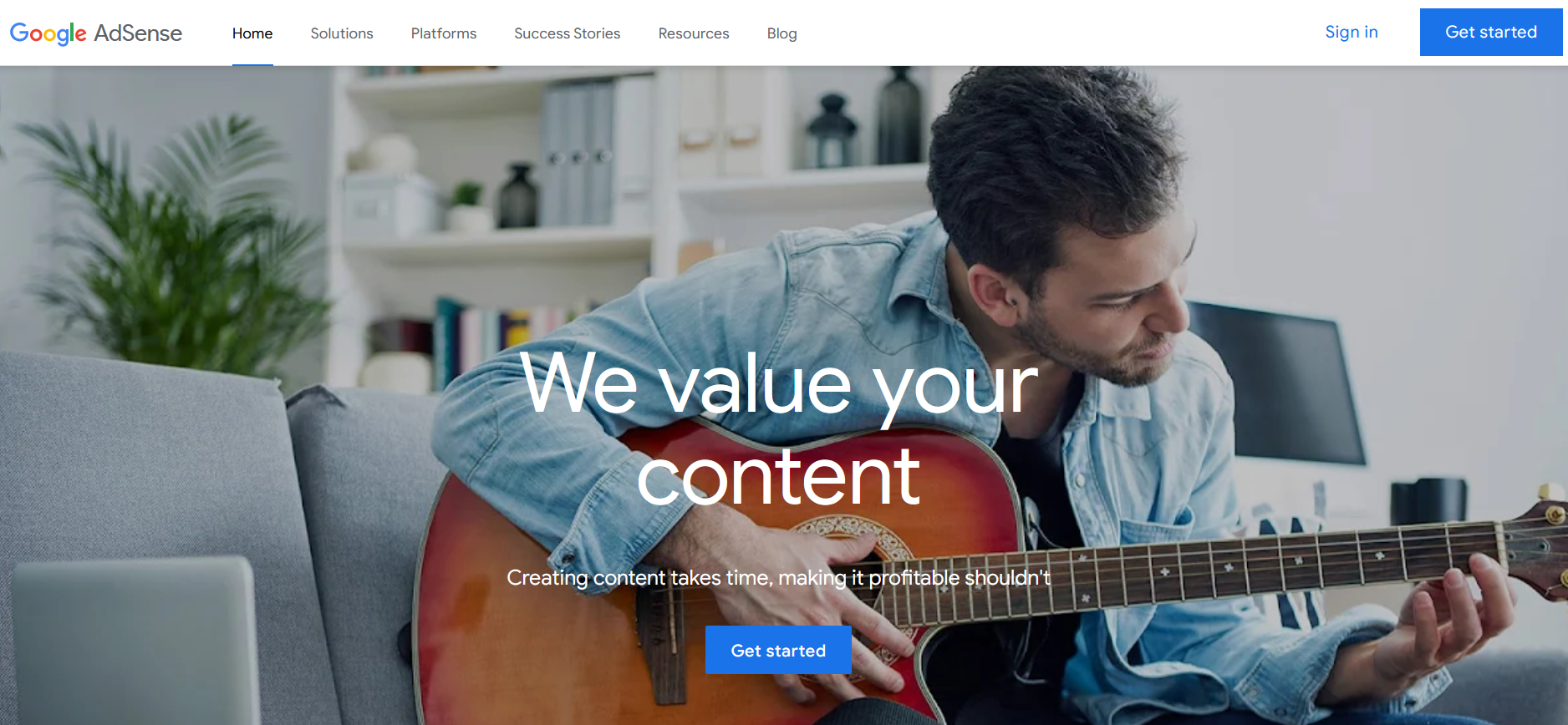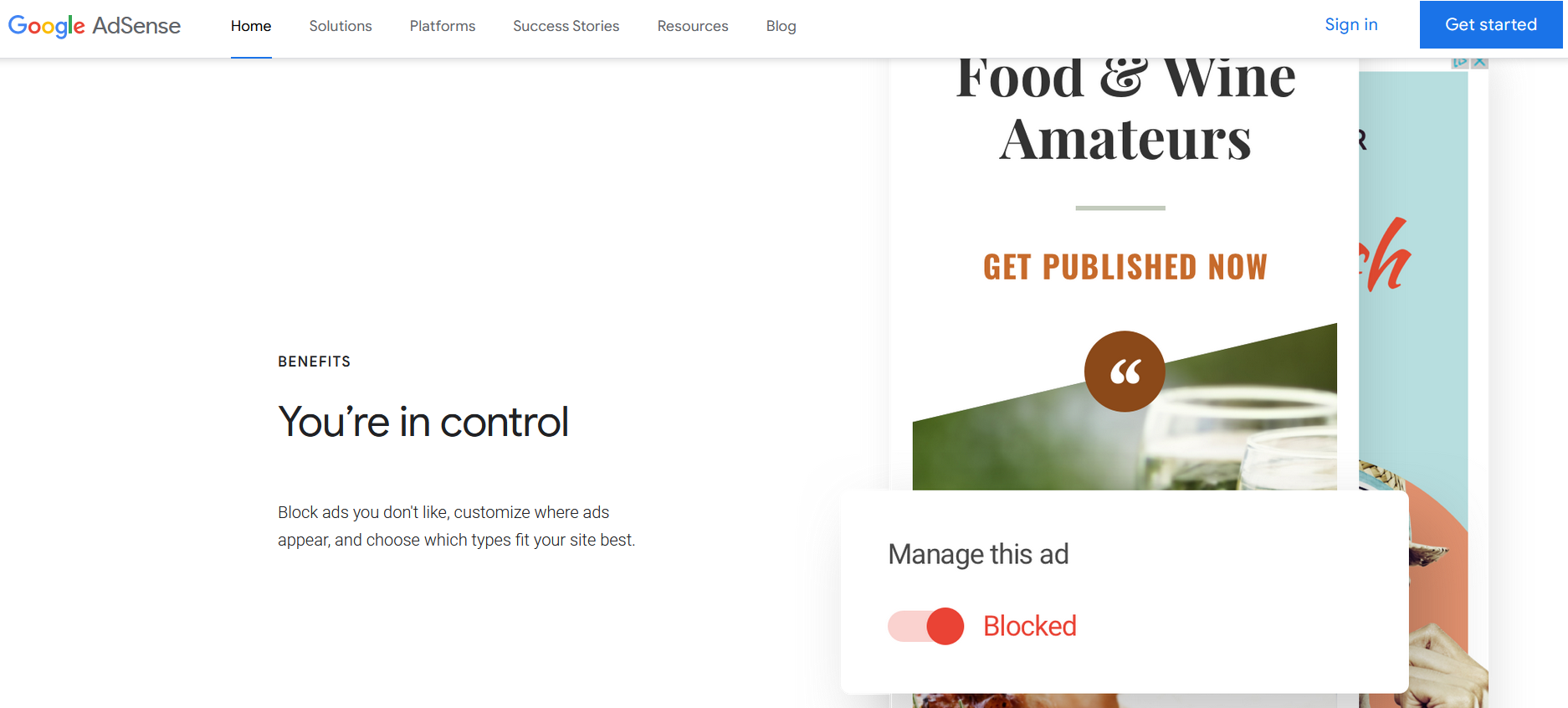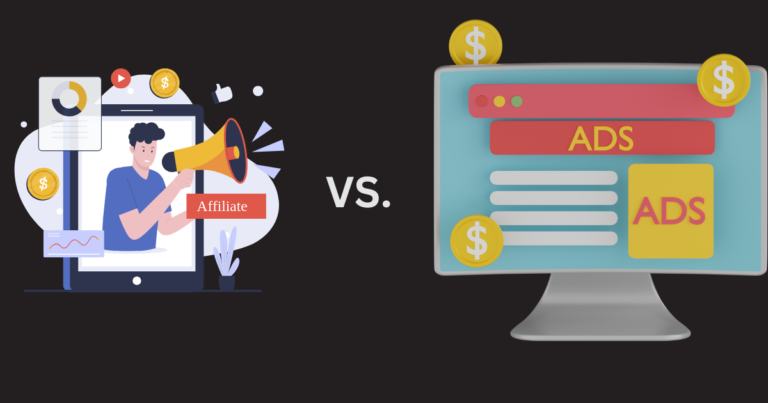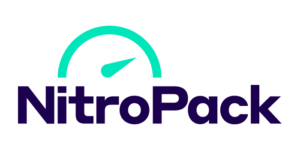Navigating the world of online earnings can, time and again, feel like being a kid in a candy store. With so many options, it’s tough to choose just one!
Today, we’re focusing on two popular treats in the digital candy shop: Google AdSense and affiliate marketing.
Both can sweeten your bank account, but like choosing between chocolate and gummy bears, it’s crucial to pick the one that suits your taste (and your website) the best.
Some folks swear by Google AdSense for its simplicity and reliability. Others prefer affiliate marketing for its potential to reel in the big bucks and the freedom to choose who you partner with.
But before you jump on either bandwagon, it’s vital to evaluate the pros and cons, understand what each option brings to the table, and, most importantly, decide which flavor aligns with your website’s goals and your personal taste.
So, buckle up! In this guide, we’ll explore the nitty-gritty of Google AdSense vs Affiliate Marketing, helping you make an informed decision.
Whether you prefer the ease of AdSense or the adventure of an affiliate program, I’ll ensure you have all the info you need to pick the perfect path to profitability.
Google Adsense and Affiliate Marketing

When we talk about Google AdSense vs Affiliate Marketing, it’s like comparing apples and oranges – both are fruit (or, in this case, ways to earn money), but they taste entirely different.
Google AdSense is the laid-back approach, where you let Google ads mingle on your site and earn you money with each click.
On the flip side, an affiliate program is like a friendship bracelet; you form partnerships with businesses and earn a commission every time your referrals turn into sales.
What is Google AdSense?

Google AdSense is a straightforward, accessible way to start monetizing your site. It doesn’t demand much – just a slice of your digital space. In return, it offers a chance to turn those clicks into cash, making your website not just a platform for your passion but also a potential source of income.
Think about this for a second: You’ve got a bustling blog or a wonderful website, and you want to start earning from all your hard work.
That’s where Google AdSense waltzes in, like a friendly neighbor ready to rent a small portion of your digital space for ads. But it’s not just any ads; these are Google ads tailored to your content and your audience.
So, how does it work? First, you need an AdSense account. It’s like getting a key to a treasure chest, but instead of gold, it’s filled with ads that can earn you money.
Once you’re in, you set up your account by adding a little bit of code to your website. Don’t worry. It’s less like rocket science and more like pasting a recipe into your cookbook.
Now, your website starts displaying ads. These aren’t random billboards, though. Google AdSense is smart – it looks at your content and your visitors, and it shows ads that are relevant and interesting to your audience. It’s like matchmaking but for your website and ads.
The best part? You earn money every time someone clicks on those ads. Think of it as digital applause for your content – every click is a nod of approval from your audience and a little cha-ching in your AdSense earnings.
And setting it all up is a breeze. Google AdSense is user-friendly, even if you’re not a tech whiz. It guides you through the process, making it as easy as pie (and who doesn’t love pie?).
So, if you’re looking to dip your toes into the world of online earnings, an AdSense account could be your golden ticket!
What is Affiliate Marketing?

If Google AdSense is the friendly neighbor renting out a spot on your lawn, then affiliate marketing is like being a savvy salesperson for products you love.
It’s a bit more hands-on and personal, but for many, it’s the golden key to unlocking substantial earnings online. So, what exactly is this path to potential prosperity?
Affiliate marketing is all about marketing goods or services you believe in and earning a commission for every single sale made through your unique affiliate link.
It’s like telling your friends about your favorite new gadget and getting a thank you note in the form of cash every time one of them buys it because of your recommendation.
Here’s how it rolls:
I. Join an Affiliate Program:
This is your first step into the world of affiliate sales. You partner with companies that offer products or services aligned with your website’s theme or your personal brand.
II. Get Your Affiliate Link:
Once you’re in, you’ll receive a unique affiliate link. This link is like a digital fingerprint; it tracks every referral from your site or post to the affiliate’s store.
III. Create Content & Promote:
Now, weave this link into your captivating content. Whether it’s a blog post, a review, a social media update, or an email, your content should engage your viewers and encourage them to explore the products you endorse.
IV. Earn Commissions:
Here comes the exciting part – earning from affiliate sales. When somebody clicks on your affiliate link and makes a purchase, you earn a commission. It’s like a high-five for your marketing efforts, but better because it’s money!
What sets affiliate marketing apart is the depth of your involvement. It’s not just about displaying ads; it’s about weaving a narrative, sharing personal experiences, and guiding your audience to products that add value to their lives.
It’s proactive, it’s engaging, and with the right strategy, it can be incredibly rewarding.
In the realm of post-affiliate marketing, your authenticity and creativity are your greatest assets. By understanding your audience and aligning with brands that resonate with your values and theirs, you can turn your digital space into a bustling marketplace, buzzing with activity and ripe with potential for affiliate sales.
So, if you’re ready to take a more active role in your online earnings journey, affiliate marketing might just be the path for you!
Pros and Cons of Google AdSense

Diving into the world of Google AdSense is like setting sail on a vast ocean – it’s full of opportunity, but it’s wise to navigate with a map.
Understanding the pros and cons of the Google AdSense program can be your compass, guiding you to make informed decisions.
Let’s chart the waters and explore the sunny shores and the stormy seas of hosting Google AdSense ads on your site.
Pros of Google AdSense
- Ease of Use: Google AdSense is like a friendly neighbor who lends you gardening tools. It’s user-friendly and straightforward, making it a breeze to set up, even for beginners.
- Reliability: With Google’s powerhouse reputation, you can rest assured that the AdSense program is a stable and reliable way to earn. It’s like having a steady job in the digital world.
- Targeted Ads: Google AdSense ads are like chameleons; they blend with your content and your audience’s interests. This increases the likelihood of clicks and, consequently, your earnings.
- Customization: You have the flexibility to choose the type and placement of ads, allowing you to align the look and feel of Google AdSense ads with your site’s design.
Cons of Google AdSense
- Earnings Fluctuation: The winds can change swiftly on the AdSense sea. Your earnings depend on your site’s traffic and the click-through rate, which can be as unpredictable as the weather.
- Content Restrictions: Google AdSense has strict content guidelines. It’s like having a dress code for your website; not adhering to it can get you in trouble or even lead to account suspension.
- Limited Control Over Ads: While you can customize ad types and placements, you don’t have complete control over the specific ads displayed. It’s like planting a garden but not being able to choose all the flowers.
- Threshold for Payout: Google AdSense requires you to earn a certain amount before you can cash out. It’s like needing to fill a bucket to the brim before you can use the water.
Navigating through the Google AdSense program requires a balance of understanding its strengths and being cautious of its limitations.
So, by evaluating these pros and cons, you can decide if Google AdSense is the right mate for your online journey or if you should set your sails towards different shores.
Remember, every website’s journey is unique, and what works as a treasure for one might be less golden for another.
Pros and Cons of Affiliate Marketing

Embarking on the affiliate marketing voyage is like starting your own adventure in the vast sea of digital marketing. As an affiliate marketer, you’re the captain of your ship, steering toward the horizon of potential earnings.
But as with any journey, it’s essential to recognize both the tailwinds that propel you forward and the headwinds that challenge your course.
Let’s navigate through the pros and cons of running an affiliate marketing business and promoting affiliate products.
Pros of Affiliate Marketing
- High Earning Potential: In the world of affiliate marketing, the sky’s the limit. With the right strategy and a robust network, affiliate marketers can enjoy significant earnings, making it a potentially lucrative aspect of digital marketing.
- Flexibility and Freedom: As an affiliate marketer, you’re the master of your domain. You decide the affiliate products you market and craft your marketing strategy in a way that aligns with your brand and audience.
- Cost-Effective Startup: Starting an affiliate marketing business doesn’t require a treasure chest. With minimal upfront investment, you can set sail and grow your business organically.
- Performance-Based Earnings: In affiliate marketing, your income is directly tied to your performance. It’s a merit-based system where the more effectively you promote, the more you earn.
Cons of Affiliate Marketing
- Dependency on Third Parties: Your affiliate marketing business relies on the stability and integrity of affiliate programs. Changes in commission rates, product lines, or terms can impact your earnings like unpredictable currents.
- Competition: The sea of affiliate marketing can be crowded with ships. Standing out among other affiliate marketers requires creativity, persistence, and a solid strategy.
- No Guaranteed Income: Unlike a regular job with a steady paycheck, affiliate marketing income can fluctuate. It’s like fishing; some days you catch a bounty, while others might leave your net empty.
- Requires Time and Effort: Building a successful affiliate marketing business isn’t a leisurely cruise. It demands time, effort, and patience to develop engaging content and cultivate a trusting relationship with your audience.
Navigating the waters of affiliate marketing requires a keen understanding of both its advantages and challenges.
By embracing the pros and preparing for the cons, you can set your affiliate marketing business on a course for success.
Remember, in the active sphere of digital marketing, being adaptable, persistent, and strategic makes all the difference in whether you sail smoothly or get caught in the storm.
Comparing Payment Models and Potential Earnings

When charting a course through the vast waters of online earnings, understanding the different currents of income is crucial.
In the realm of ad revenue from Google AdSense and affiliate income from marketing, the way you earn your treasure can vary significantly.
Let’s weigh anchors and explore how these payment models work and what they mean for your potential to make more money.
Ad Revenue from Google AdSense
- Pay-Per-Click (PPC): Google AdSense primarily uses a PPC model, meaning you earn money any time a guest clicks on an ad on your site. It’s like having a fruit tree in your backyard; each fruit (or click) provides a small but steady source of nourishment (income).
- Earnings Depend on Traffic and Click Rates: Your ad revenue is directly tied to your website’s traffic and how often visitors engage with the ads. More traffic and higher engagement can lead to more money, but remember, not all visitors will click on ads, and click rates can vary.
- Steady and Predictable: While individual clicks might not bring a windfall, ad revenue can be relatively steady and predictable over time, especially if your site has consistent traffic and content that attracts visitors.
Affiliate Income from Marketing
- Commission-Based: Affiliate marketing is like casting a wider net into the sea of potential customers. You earn a commission, typically a commission of the sale, when someone buys a product through your affiliate link. The commission rate can differ significantly depending on the product and the affiliate program.
- Potential for Higher Earnings per Sale: While AdSense provides smaller, more frequent earnings, a single affiliate sale can bring in significantly more money, depending on the product’s price and the commission rate.
- Performance and Engagement Are Key: Your affiliate income depends on your ability to engage and persuade your audience. Effective promotion and a deep understanding of your audience’s needs and desires can lead to higher click-through rates and conversions, ultimately earning you more money.
- Requires Building Trust: Successful affiliate marketing is built on trust and credibility. Your audience needs to believe in your recommendations, which means promoting products that you truly find valuable and align with your content.
When comparing ad revenue from Google AdSense with affiliate income, consider the nature of your website, your audience, and your content.
Google AdSense offers a more straightforward, passive way to earn, while affiliate marketing demands active engagement but holds the promise of potentially higher rewards.
Both paths can lead to more money, but the journey, the scenery, and the challenges along the way can be quite different.
Whichever route you choose, navigating it with knowledge, strategy, and a keen eye on your audience’s needs will be key to your success.
Traffic and Content Requirements

Whether you’re setting sail with an affiliate marketing program or charting a course with Google AdSense, the winds of website traffic and the quality of your content are what fill your sails and propel you forward.
Understanding how both affiliate marketing and Google AdSense interact with these crucial elements can help you navigate to success.
The Role of Traffic in Earning Potential
- Google AdSense: A Numbers Game: Think of Google AdSense like a busy marketplace; the more people that pass by your stall (website), the more likely you are to make a sale (or, in this case, get a click).
High traffic can increase your chances of ad clicks, leading to more consistent ad revenue. However, keep in mind that not all traffic is equal; engaging, high-quality content is key to attracting the kind of visitors who are likely to interact with ads.
- Affiliate Marketing: Quality Over Quantity: While traffic is important in affiliate marketing, the quality of your visitors can be more crucial than sheer numbers.
Successful affiliate marketers focus on attracting an audience that is interested in their niche and more prone to click on affiliate links and make purchases.
In this sense, a smaller, more targeted audience can often be more valuable than a large, less engaged one.
Content: The Heart of Your Strategy
- Content for Google AdSense: When you’re working with Google AdSense, your content should be engaging and designed to attract a broad audience. The more visitors you draw to your site, the higher your potential ad revenue.
However, it’s not just about quantity. Quality content that keeps visitors on your page longer can also lead to more ad interactions.
- Content for Affiliate Marketing: For those in the affiliate marketing program, content is your pitch. It needs to be persuasive, trustworthy, and tailored to your niche audience.
Your content should seamlessly integrate affiliate links, encouraging clicks without being pushy. Remember, in affiliate marketing, your content doesn’t just attract visitors—it needs to convert them into customers.
- Both Affiliate Marketing and Google AdSense: Regardless of the route you choose, your content should always be high-quality, valuable, and relevant to your audience.
For both affiliate marketing and Google AdSense, content that resounds with your viewers and keeps them engaged on your site is crucial.
Not only does it contribute to a positive user experience, but it also enhances your site’s reputation, potentially leading to more traffic and better earning potential.
So, while the traffic and content requirements for Google AdSense and affiliate marketing have their nuances, the basic principle remains the same: focus on creating a great user experience.
Whether through informative, engaging content that supports ad revenue or through carefully curated content that promotes products in your affiliate marketing program, your ability to connect with and understand your audience is key.
It’s this connection that will help ensure that every visit to your site has the potential to contribute to your success.
Risk and Stability Considerations

Venturing into the realms of Google AdSense and affiliate marketing is akin to setting sail on vast, sometimes unpredictable, digital seas.
Both paths offer the allure of treasure, yet they also harbor their own sets of risks and stability considerations. Navigating these waters wisely requires an understanding of the potential storms and the safe harbors.
Google AdSense: Stability with a Dash of Caution
- Reliability of Google: Google AdSense is backed by one of the largest tech giants, providing a sense of stability and reliability. You’re working with a well-established program known for its consistency.
- Susceptibility to Algorithm Changes: However, the digital sea is governed by the winds of algorithm changes. A significant update can alter your site’s visibility overnight, impacting traffic and, consequently, ad revenue.
- Adherence to Rules: Google AdSense has strict guidelines and policies. Non-compliance, even unintentionally, can lead to account suspension, turning off the revenue stream abruptly.
Affiliate Marketing: High Reward Meets High Vigilance
- Dependency on Affiliate Programs: Your earnings are tied to the stability and terms of your chosen affiliate programs. Changes in commission structures or program policies can significantly affect your income.
- Market Fluctuations: The market’s demand for the affiliate products you promote can shift, influenced by trends, seasons, or consumer behavior changes, directly impacting your earnings.
- Control Over Your Destiny: While affiliate marketing requires more active management, it also offers more control. You can diversify your affiliate products or switch programs if one underperforms, somewhat mitigating the risk.
A Balanced Approach for Both Paths
Whether you choose Google AdSense, affiliate marketing, or a combination of both, balancing your approach can help mitigate risks and add stability to your online income.
Diversifying your income streams, staying informed about policy changes, and regularly analyzing your performance data are prudent practices.
They help you adjust your sails promptly and catch favorable winds, ensuring that your online voyage remains both prosperous and enjoyable.
Conclusion: Navigating the Crossroads of Google AdSense vs Affiliate Marketing

As we anchor at the end of our explorative journey through the realms of Google AdSense and affiliate marketing, it’s clear that each path offers its own unique treasures and challenges.
Google AdSense stands as a beacon of simplicity and reliability, offering a straightforward way to monetize your site with minimal fuss.
Affiliate marketing, on the other hand, beckons with the promise of potentially higher rewards, paired with the thrill of crafting compelling content and building lasting partnerships.
As you stand at this crossroads, consider not just the potential earnings but also the journey you wish to embark upon. Do you prefer the steady, more predictable path of Google AdSense, or does the dynamic, hands-on world of affiliate marketing call your name? Perhaps a blend of both could serve as your map to online success.
Regardless of the path you take, remember that the digital seas are ever-changing. Regularly revisit your strategy, stay adaptable, and keep your audience’s needs and interests at the heart of all you do.
With a keen eye on the horizon and a steadfast hand on the helm, you’re well-equipped to navigate the exciting waters of Google AdSense vs Affiliate Marketing and steer your way to success.



























